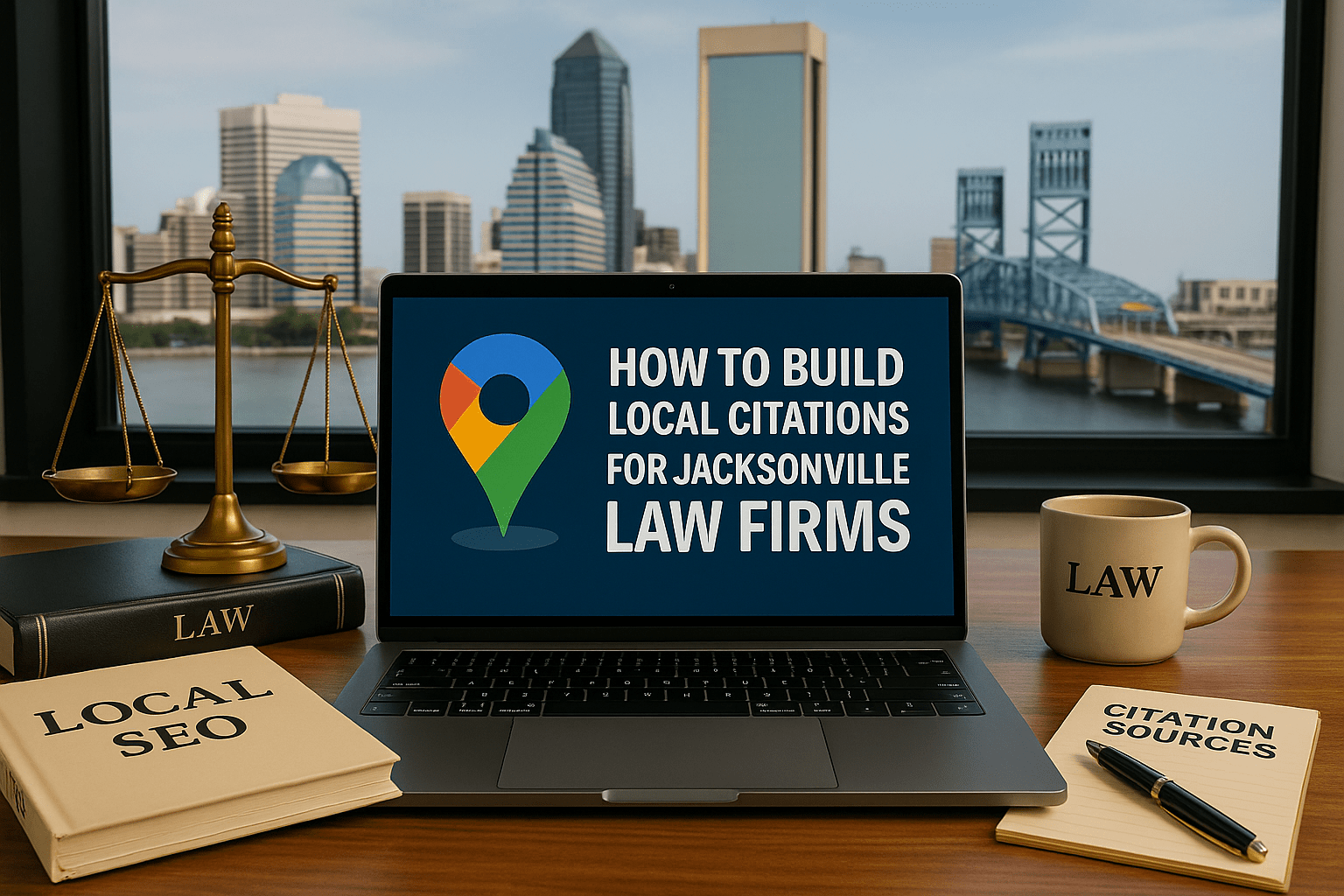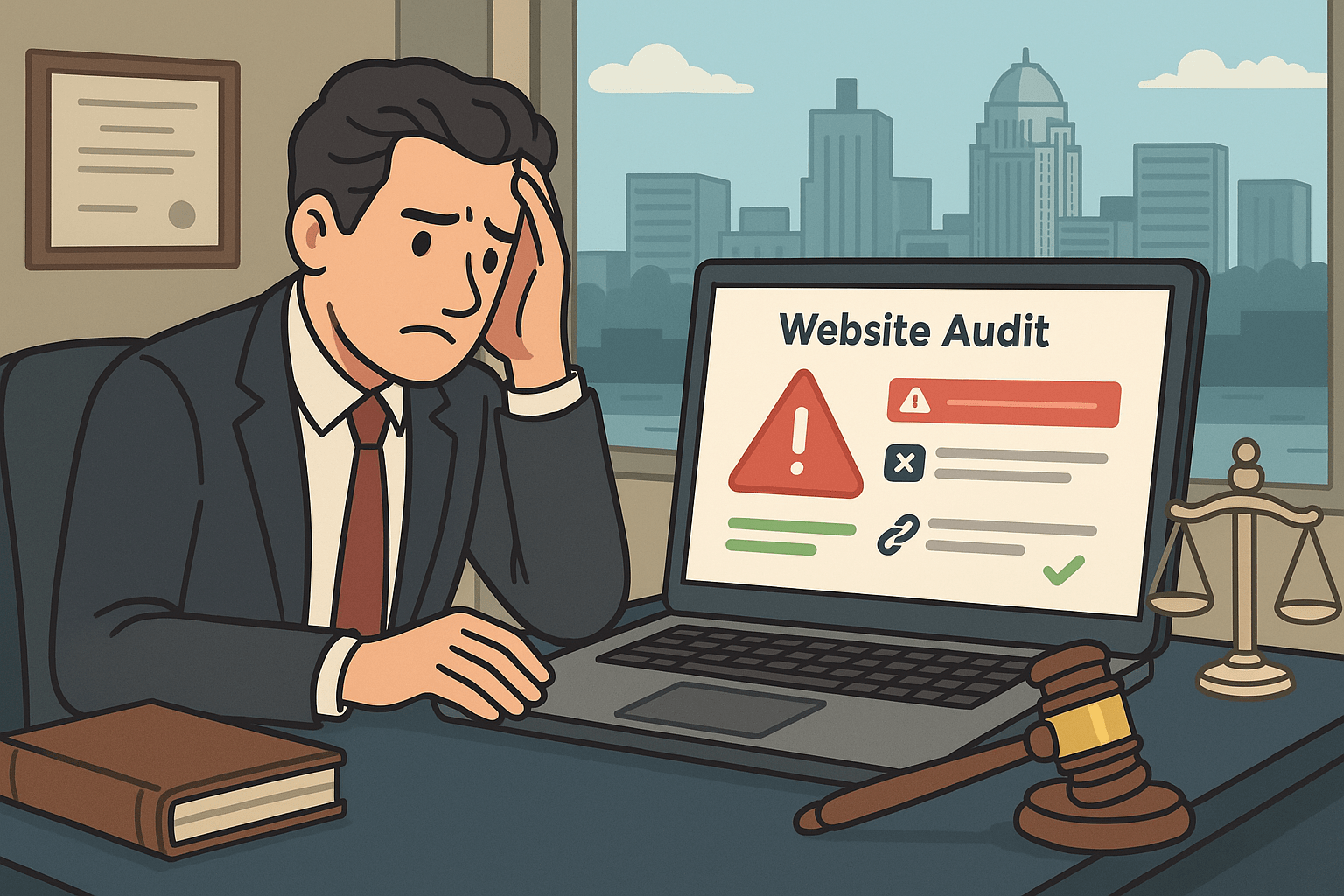We’ve spent years in the trenches of Local SEO, especially in hyper-competitive fields like legal services. We’ve seen firsthand how a well-executed online strategy can transform a practice, and conversely, how a lack of one can leave a firm struggling. For criminal defense lawyers, this isn’t some abstract marketing concept; it’s about being the lifeline when someone’s world is falling apart.
When a potential client, in a moment of panic, searches “criminal defense attorney near me,” or “best DUI lawyer [city name],” you need to be the beacon of hope. You need to be undeniably, irrefutably there.
This isn’t about flashy tricks or short-lived hacks. It’s about laying a robust, strategic foundation that Google, and more importantly, real people in your community, can trust.
From my perspective, this isn’t just about rankings; it’s about real lives. It’s about being the answer when someone is desperately searching for help. They don’t have time to sift through pages of irrelevant results. They need you, and they need you now. And that’s where a meticulously crafted local SEO strategy comes into play.
Table Contents
- Why "Local" is Your Legal Lifeline - It's Not Just About Maps
- Our Proven Local SEO Strategy for Criminal Defense Lawyers
- 1. Google Business Profile (GBP) - Optimized for Conversions
- 2. Local Citations - Building Your Online Legal Network
- 3. Website Optimization - Designed for Local Intent and Conversions
- 4. Local Link Building - Building Your Legal Authority
- 5. Reputation Management - Your Digital Legal Reputation
- 6. Content Marketing - Establishing Your Legal Expertise
- 7. Social Media - Engaging Your Local Legal Community
- 8. Tracking Your Legal SEO Performance
- 9. Why DIY is a Risky Legal Strategy - Let a Specialist Handle It
- Frequently Asked Questions (FAQ): Local SEO for Criminal Defense Lawyers
Why "Local" is Your Legal Lifeline - It's Not Just About Maps
Forget the generic “online presence” talk. For criminal defense, “local” is the oxygen your practice breathes.
The “Now” Factor: High-Intent, Immediate Need: These aren’t casual searches. Someone facing criminal charges isn’t browsing; they’re in crisis. They need immediate, local representation. You have to be the first name they see.
Trust is Earned, Not Bought, Locally: Legal services are built on the bedrock of trust. People want a lawyer who understands their city, their courts, their judges. Local SEO builds that crucial connection. It’s about showing them you’re part of their community, not just a name on a website.
Hyper-Targeted Leads: No Wasted Marketing Dollars: Why cast a wide net when your ideal clients are right in your backyard? Local SEO brings in qualified leads who are actively seeking your specific services.
Outmaneuvering Competitors: The Local Dominance Game: In a crowded legal market, local dominance means more cases, a stronger reputation, and sustained growth. It’s about becoming the go-to name in your area.
Local Legal Nuances: Expertise That Matters: Clients don’t want a generic legal solution. They want a lawyer who understands the specific laws, courts, and local legal landscape. They need someone who knows the local DA, the local judges, and the local court procedures.
Our Proven Local SEO Strategy for Criminal Defense Lawyers
1. Google Business Profile (GBP) - Optimized for Conversions
This isn’t just a listing; it’s your virtual storefront. It’s often the first impression a potential client has of your firm.

Claim, Verify, Conquer: The Foundation: This is where it all starts. Get it right, or risk losing out on valuable leads.
- NAP Consistency is Non-Negotiable: Name, Address, Phone must be identical across every online platform. Use tools to check for inconsistencies and fix them immediately.
- Category Precision is Key – Speak Google’s Language: “Criminal Defense Lawyer,” “DUI Attorney [city name],” “Drug Offense Lawyer [local area].” Be specific and use relevant long-tail keywords.
- Description That Converts – Tell Your Story, Sell Your Expertise: Write a detailed, compelling description using natural language and relevant keywords. Focus on what clients need, not just what you do.
- Visual Appeal Matters – Build Trust with Images: High-quality photos of your office, team, and (redacted) case materials build trust and credibility.
- Service Listings: List every service, “Assault Defense,” “Domestic Violence Cases,” and more.
- Q&A – Be the Expert, Answer Their Concerns: Anticipate client questions and answer them thoroughly, demonstrating your expertise and building rapport.
- Reviews – Your Digital Reputation: Manage and Cultivate: Encourage reviews, respond professionally, and address any concerns promptly.
- Google Posts – Keep it Fresh, Stay Relevant: Share updates, legal insights, and local news to keep your profile active and engaging.
Keyword Strategy: Long-Tail is Your Friend: Use long-tail keywords like “best criminal defense lawyer for [specific charge] in [your city]” within the profile, naturally woven into the content.
2. Local Citations - Building Your Online Legal Network
Now, let’s talk about citations. Think of them as online endorsements. They’re not just about listing your business; they’re about building a network of trust.

- Citation Audit is Essential: Before you build, you need to know what you’re working with. Use specialized tools to find and fix inconsistencies in your existing citations. Inaccurate information can damage your credibility.
- Legal Directories are Gold: Avvo, Justia, FindLaw, Martindale-Hubbell are non-negotiable. These are where potential clients expect to find legal professionals.
- Local Business Directories – Community Connection: Yelp, Chamber of Commerce, BBB. These are important for establishing your local presence and building trust within your community.
- Niche Legal Citations: City bar associations, legal blogs, local court websites. These are highly relevant and can significantly boost your authority.
- Data Aggregators – Information Backbone: Ensure accuracy on Infogroup, Localeze, Acxiom. These are the sources that many other directories pull their information from.
- Focus on Quality, Not Quantity: The Strategic Approach: Fewer, high-authority citations from reputable sources are far more valuable than a large number of low-quality, irrelevant listings.
3. Website Optimization - Designed for Local Intent and Conversions

- Location Pages are Mandatory: Dedicated pages for each service area, optimized with relevant local keywords. These pages should be rich with local information and tailored to the specific needs of each area.
- Deep Local Keyword Research: The Client’s Language: Don’t guess. Use advanced keyword research tools to find high-intent, long-tail keywords that your potential clients are actually using.
- Meta Data Optimization: The First Impression: Craft compelling title tags and meta descriptions that include location-based keywords and entice clicks.
- Local Content is King: The Expertise Showcase: Blog posts, articles, and case studies about local legal issues and developments. This is your chance to demonstrate your expertise and build trust.
- Schema Markup – The Search Engine’s Guide: Implement local business schema and legal schema to help search engines understand your website content and display it accurately in search results.
- Mobile-First Design: A responsive, fast-loading website is crucial in today’s mobile-driven world.
- Internal Linking Strategy: The Navigation Blueprint: Connect location pages to service pages to improve navigation and distribute link equity.
- Embedded Google Maps: The Convenient Locator: Make your location easy to find with an embedded Google Map on your contact page.
- Local FAQs: The Answer Provider: Answer common local legal questions to provide valuable information and build trust.
- Create Local Landing Pages: The Specialized Approach: Tailored landing pages for specific legal services within specific locations, designed for maximum conversion.
Your website is your digital storefront, your 24/7 legal information hub. It needs to be optimized for both search engines and, more importantly, potential clients.
4. Local Link Building - Building Your Legal Authority

Link building in the legal field isn’t about chasing any link you can find. It’s about building a network of relevant, authoritative links that signal trust and expertise.
- Local Partnerships – The Community Connection: Links from local businesses, organizations, and community websites. This shows Google you’re an active part of your community.
- Guest Blogging on Legal Blogs – The Thought Leadership Platform: Contribute to relevant legal blogs with local audiences. This positions you as an expert and builds valuable links.
- Local News Outreach – The Expert Commentary: Monitor local news and offer expert commentary on legal developments. This can lead to valuable links and media mentions.
- Sponsorships of Legal Events – The Community Involvement: Sponsor local legal events, bar association meetings, and community initiatives.
- Local University Links – The Academic Connection: If applicable, obtain links from local university websites or alumni pages.
- Broken Link Building – The Strategic Opportunity: Find broken links on local legal websites and offer your content as a replacement. This is a win-win.
- Focus on Relevant Links – The Targeted Approach: Links from other legal professionals and websites are extremely valuable. It’s about quality, not quantity.
5. Reputation Management - Your Digital Legal Reputation

In the legal field, your reputation is everything. Online reviews and mentions can make or break your practice.
- Proactive Review Strategy: Implement a system to solicit reviews from satisfied clients. Don’t be afraid to ask, but do it professionally.
- Prompt and Professional Responses: Address all reviews, both positive and negative, in a timely and professional manner. Show you care about your clients’ experiences.
- Online Reputation Monitoring: Use tools to track reviews and mentions across all platforms. Stay informed about what people are saying about your firm.
- Social Media Management: Engage on relevant platforms, build a community, and address concerns promptly.
- Monitor Legal Mentions: Google Alerts, social listening tools to track mentions of your firm and your name.
- Address Negative Reviews Properly: Don’t ignore them. Professionally respond and offer solutions. Turn a negative into a positive.
6. Content Marketing - Establishing Your Legal Expertise

Content marketing isn’t just about writing blog posts; it’s about positioning yourself as the go-to legal expert in your area.
- Blog Posts – Legal Insights and Local Relevance: Share valuable legal information that directly addresses the concerns of your local community. Focus on local legal issues, recent court rulings, and changes in local laws.
- Videos: Legal Q&A and Expert Introductions: Create videos that answer common legal questions, provide legal insights, and introduce your team. Videos are a powerful way to build trust and demonstrate your expertise.
- Podcasts – Local Legal Discussions and Analysis: Consider creating a podcast to discuss local legal developments, provide legal advice, and interview local legal professionals.
- Local Legal Guides: Create comprehensive guides on legal processes specific to your area. This positions you as a helpful resource and builds trust.
- Infographics – Simplifying Complex Legal Concepts: Create visually appealing infographics that explain complex legal concepts in a clear and concise manner. This makes legal information more accessible to your audience.
7. Social Media - Engaging Your Local Legal Community
Social media isn’t just a platform for self-promotion; it’s a tool for community engagement.
- Local Legal Groups – Participating in the Conversation: Join relevant Facebook and LinkedIn groups where local residents discuss legal issues. Actively participate in these discussions, offering your expertise and building relationships.
- Targeted Social Media Ads – Reaching Your Ideal Clients: Run targeted social media ads that reach local users with specific legal needs. Use precise targeting options to ensure your ads are seen by the right people.
- Geo-Tagging Posts – Increasing Local Visibility: Geo-tag your social media posts to increase their visibility among local users. This helps your content reach a wider local audience.
- Local Legal Event Promotion – Connecting with the Community: Share information about local legal events, bar association meetings, and community initiatives. This shows your involvement in the local legal community.
- Live Q&As – Engaging Directly with Your Audience: Host live Q&A sessions on social media to answer legal questions and engage directly with your audience. This builds trust and demonstrates your accessibility.
8. Tracking Your Legal SEO Performance
You can’t improve what you don’t measure. In the world of Local SEO, data is your compass.
- Google Analytics – Website Insights: Track website traffic, user behavior, and conversion rates. Understand where your visitors are coming from and what they’re doing on your site.
- Google Search Console – Search Engine Insights: Monitor search queries, impressions, and click-through rates. See how your website is performing in search results and identify areas for improvement.
- Google Business Profile Performance: Analyze GBP performance data, including phone calls, website clicks, and directions requests. See how your profile is driving leads.
- Ranking Tracking Tools – Monitor Your Local Position: Utilize ranking tracking tools to monitor your local search rankings for key keywords. See how your website is performing compared to your competitors.
- Review Monitoring Tools – Track Your Reputation: Use tools to track online reviews and sentiment analysis. Stay on top of what people are saying about your firm.
- Conversion Tracking – Measure Your ROI: Track phone calls, form submissions, and other valuable actions to measure the return on your investment.
9. Why DIY is a Risky Legal Strategy - Let a Specialist Handle It
Look, you’re a legal expert, not a digital marketing guru. Your time is invaluable, and your expertise lies in the courtroom, not in coding or algorithm analysis.
- Time Constraints – Focus on Your Clients: Running a successful legal practice is demanding. You don’t have time to become an SEO expert.
- Technical Expertise Gaps: Local SEO is complex, with ever-changing algorithms and best practices. A specialist stays up-to-date.
- Competitive Market – Gain a Strategic Advantage: In a competitive legal market, you need a strategic advantage. A specialist can provide that.
- ROI Demands – Maximize Your Marketing Budget: A well-executed SEO strategy delivers a significant return on investment. A specialist can ensure you’re getting the most out of your budget.
- Long-Term Strategy – Build Sustainable Growth: A specialist can develop a long-term SEO strategy that builds sustainable growth for your practice.
- Avoid Costly Mistakes: One incorrect change to your site, or GBP, can cost you potential clients.
This isn’t just about getting clicks; it’s about getting clients. It’s about being the trusted legal advocate your community needs.
Let’s make sure your firm is the first name people see when they search for a criminal defense lawyer in your area. Contact us today, and let’s build a local SEO strategy that delivers real results.
Frequently Asked Questions (FAQ): Local SEO for Criminal Defense Lawyers
A: Local SEO ensures your firm appears in high-intent searches like “DUI lawyer near me.” It helps you connect with clients in immediate need, builds local trust, and positions you as the go-to expert in your community.
A: Your GBP acts as a digital front desk. When optimized properly—with accurate NAP, service listings, reviews, and regular posts—it increases visibility, builds credibility, and generates calls and visits from local prospects.
A: Legal citations are business listings on reputable directories like Avvo, Justia, and Martindale-Hubbell. They strengthen your online authority and ensure potential clients find consistent, trustworthy information about your firm.
A: Content should focus on local legal topics, FAQs about charges, updates on local laws, and case studies. Blogs, videos, and guides that speak directly to your local audience build trust and show your legal expertise.
A: Track performance using Google Analytics, Google Search Console, GBP Insights, and rank tracking tools. Monitor traffic, leads, and keyword positions to continually refine your strategy.









